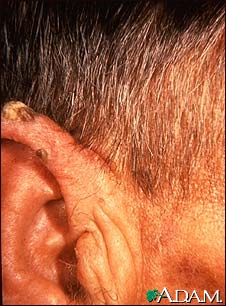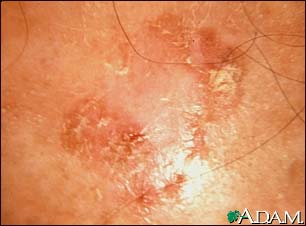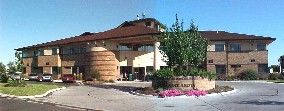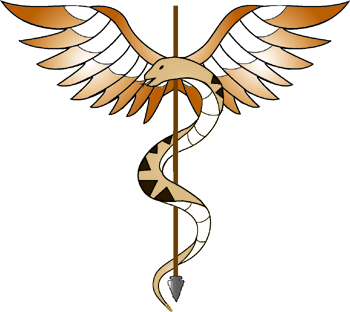NEBRASKA MELANOMA CENTER ®: Midwestern Values Nebraska Focused
www.nebraskin.com
Clinically integrated melanoma prevention, early diagnosis and care is finally here!
NEBRASKA MELANOMA CENTER ®SKIN CANCER FUN QUIZ
| Home | About Us | Melanoma | Squamous Cell Cancer | Basal Cell Cancer | Pre-Cancers |
| Skin Screening | Notification | Consent | Database | Referrals | Links |
WHO SHOULD EVALUATE OR BIOPSY YOUR
SKIN?
PRE-CANCERS OF THE SKIN


Actinic keratosis
Nebraska physicians who can treat your skin disease or detect cancer
Actinic keratosis is a precancerous skin growth usually caused by sun exposure. Actinic keratosis occurs most commonly in fair skin, especially in the elderly and in young individuals with light complexions. The growths occur in sun-exposed skin areas. The growths begin as flat scaly areas that later develop a hard wart-like surface.
They are classified as precancerous growths. If left untreated, approximately 10% of actinic keratoses develop into squamous cell carcinoma. The following list gives the characteristics of actinic keratoses:
Rough and dry textured skin lesion
A macule, patch, or growth on the skin
Limited to a discrete area (localized)
Located on the face, scalp, back of the hands, chest or other sun-exposed
areas
Color gray, pink, red (erythematous), or the same color as the skin
Surface is initially flat and scaly, then becomes slightly raised
Surface texture becomes hard and wart-like or gritty, rough, and "sandpapery";
may develop a horn-like texture from overgrowth of skin keratin layer (hyperkeratosis)
Note: The skin lesion may be easier to feel than to see.
The NEBRASKA MELANOMA CENTER ® bases the diagnosis on the appearance of the skin growth. A skin biopsy could reveal signs of cancerous changes, if present.
Because actinic keratoses represent precancerous changes, have them examined promptly, and follow your health care provider's advice for treatment.
Growths may be removed by cryotherapy (freezing), electrical cautery (burning), or surgery. Growths may also be treated with topical medications that cause peeling or skin removal.
By itself, actinic keratosis is benign, but it may develop into skin cancer. Removal of the growth is usually effective.
Call for an appointment with your health care provider if areas of persistent roughness or scaliness develop in sun-exposed skin.
Minimize sun exposure and protect skin from the sun. Wear protective clothing such as hats, long sleeved shirts, long skirts, or pants. Ultraviolet light is most intense midday, so try to avoid exposure during these hours.
Use high-quality sunscreens, preferably with SPF (sun protection factor) ratings of at least 15. Pick a sunscreen that blocks both UVA and UVB light. Apply sunscreen at least half an hour before exposure, and reapply frequently.
Use sunscreen for winter exposure also.
NEBRASKA MELANOMA CENTER ® is a public-private effort in healthcare services related to educating Nebraskans about proper skin care as well as the prevention, diagnosis and treatment of skin conditions, including skin cancers. If you undergo a skin biopsy, the skin specimen may be sent to NEBRASKA MELANOMA CENTER ® and its affiliate, Pathology Services, P.C. for processing, evaluation, diagnosis, and inclusion in its database. Having your skin biopsy specimen(s) sent to Pathology Services, PC. is not required to avail yourself of the resources of NEBRASKA MELANOMA CENTER ®. If your healthcare provider sends your skin biopsy specimen elsewhere, NEBRASKA MELANOMA CENTER ® would appreciate a copy of your pathology report to include its diagnosis in its Nebraska cancer registry. Ongoing national research furthers our efforts to continually improve skin disease diagnosis and treatment for Nebraskans.
For more information about our services or to send skin biopsies to us, contact
NEBRASKA MELANOMA CENTER ®: Midwestern Values Nebraska Focused
NEBRASKA MELANOMA CENTER ® is a service mark of Pathology Services, P.C.

611 West Francis Street
North Platte, Nebraska 69101
Byron L. Barksdale, M.D.
Phone: 308-532-4700
© Copyright, 2003-2017 Healthy Nebraska, Inc. All rights reserved worldwide.
